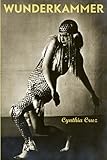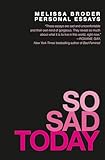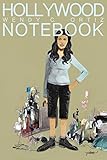I like to travel but flying makes me anxious. On a plane, I am cramped in a seat for hours, with little to do but to inhabit the abyss of my mind. I wish I could shut out the world and sleep, but the incessant chatter of fellow passengers, drone of engines, and upright seats keep me awake. When I was fifteen, on a fourteen-hour sojourn from Hong Kong to Vancouver, the legroom was so scarce that my knees hit the seat in front of me. Somewhere near the International Date Line, I began eyeing the emergency exit doors. I wanted to open them and jump into the sky.
These days I live in Denver, where most major American cities are two to four hours away by plane. I travel often, whether for work or for pleasure, and on these short flights I see the proverbial light at the end of the aluminum tunnel before we depart, as long as I have earplugs and something to keep me occupied. I cannot seem to work or write, though I wish I could — imagine how much I could get done. What I need, I have found, is a good book. But there is airplane reading and airplane reading.
 I write poetry, but I cannot read poetry on a plane. I picked up Cynthia Cruz’s third collection Wunderkammer when it came out and brought it with me to San Francisco the next day. Wunderkammer is saturated with images of old world Europe — the cover is a sepia photograph of James Joyce’s daughter Lucia dancing at a Parisian ball — yet the book made me think of California. Cruz’s poems blend decadent imagery with tense, controlled lines she pushes to breaking; perhaps I saw in her style an antidote to California’s excess. In any case, I wanted to read the book. But after two or three poems, I needed to take a walk and the trip down the aisle to the bathroom was nowhere near enough. I needed space to dwell in the silences of the work.
I write poetry, but I cannot read poetry on a plane. I picked up Cynthia Cruz’s third collection Wunderkammer when it came out and brought it with me to San Francisco the next day. Wunderkammer is saturated with images of old world Europe — the cover is a sepia photograph of James Joyce’s daughter Lucia dancing at a Parisian ball — yet the book made me think of California. Cruz’s poems blend decadent imagery with tense, controlled lines she pushes to breaking; perhaps I saw in her style an antidote to California’s excess. In any case, I wanted to read the book. But after two or three poems, I needed to take a walk and the trip down the aisle to the bathroom was nowhere near enough. I needed space to dwell in the silences of the work.
 I also remember trying to read Djuna Barnes’s modernist novel Nightwood on a return flight from Miami. Granted, after a madcap Halloween weekend of drinking and boating on Biscayne Bay, I probably would not have been able to read a grocery list, but as much as I loved the gorgeous rhythms of Barnes’s language, I could not follow the ellipses in the story. I have not picked up the book again. I keep looking at it on my shelf, wanting to get back into the thorny opulence of its world, but Nightwood strikes me as a book that demands all of our inner resources, which lately I have not been able to marshal in my everyday life, much less in the brain fog I get at 35,000 feet.
I also remember trying to read Djuna Barnes’s modernist novel Nightwood on a return flight from Miami. Granted, after a madcap Halloween weekend of drinking and boating on Biscayne Bay, I probably would not have been able to read a grocery list, but as much as I loved the gorgeous rhythms of Barnes’s language, I could not follow the ellipses in the story. I have not picked up the book again. I keep looking at it on my shelf, wanting to get back into the thorny opulence of its world, but Nightwood strikes me as a book that demands all of our inner resources, which lately I have not been able to marshal in my everyday life, much less in the brain fog I get at 35,000 feet.
 Oddly, it’s the personal essay collection that seems to soothe my nerves on the plane. I read Melissa Broder’s essay collection So Sad Today on a recent flight to Charlotte, beginning when we took off from Denver, taking a break in transit in Minneapolis, and finishing just as I saw the lights of my destination in the night sky. It was a dream: the world fell away and reassembled just as I returned to land. So Sad Today is not an easy read: Broder writes about her experiences with anxiety, depression, addiction, and abjection, among other things. I especially loved her meditations on her husband’s chronic illness, their open marriage, and the love that sustains a long relationship. I had to close my eyes after each essay, reassessing the stories I tell myself about my life, but I kept reading. There is a thematic unity to the collection, but each essay could stand by itself, a perfect capsule of intensity that engaged my restless mind on the plane.
Oddly, it’s the personal essay collection that seems to soothe my nerves on the plane. I read Melissa Broder’s essay collection So Sad Today on a recent flight to Charlotte, beginning when we took off from Denver, taking a break in transit in Minneapolis, and finishing just as I saw the lights of my destination in the night sky. It was a dream: the world fell away and reassembled just as I returned to land. So Sad Today is not an easy read: Broder writes about her experiences with anxiety, depression, addiction, and abjection, among other things. I especially loved her meditations on her husband’s chronic illness, their open marriage, and the love that sustains a long relationship. I had to close my eyes after each essay, reassessing the stories I tell myself about my life, but I kept reading. There is a thematic unity to the collection, but each essay could stand by itself, a perfect capsule of intensity that engaged my restless mind on the plane.
 Another good experience: reading Wendy C. Ortiz’s Hollywood Notebook while flying to Boston last summer, on the way to Provincetown for a writing workshop. The book, which Ortiz calls a “prose poemish memoir,” was born out of a blog Ortiz kept when she lived in Hollywood in her late twenties. The ninety short chapters range from a few lines to two or three pages, from meditations to lists and quotes, charting the banalities and epiphanies of a young woman trying to figure out who she is as a person and an artist. In the three hours I spent with Hollywood Notebook, I reflected on my own circuitous path to writing, the places I want to go in my own work. I did not find answers, or even questions; for a moment, I was content that my thoughts remained amorphous.
Another good experience: reading Wendy C. Ortiz’s Hollywood Notebook while flying to Boston last summer, on the way to Provincetown for a writing workshop. The book, which Ortiz calls a “prose poemish memoir,” was born out of a blog Ortiz kept when she lived in Hollywood in her late twenties. The ninety short chapters range from a few lines to two or three pages, from meditations to lists and quotes, charting the banalities and epiphanies of a young woman trying to figure out who she is as a person and an artist. In the three hours I spent with Hollywood Notebook, I reflected on my own circuitous path to writing, the places I want to go in my own work. I did not find answers, or even questions; for a moment, I was content that my thoughts remained amorphous.
As much as I love reading personal essays, I rarely write explicitly from my life. At this point, it is not the genre that best channels the questions I am asking in my work. But I learn a lot from these writers who examine the interstices of life that we — or at least I — tend to overlook. I learn a language to describe the recesses of my mind that I would rather avoid. And on the plane, I can read personal essays without the anxiety of comparison.
 Some years ago, I met Chloe Caldwell in Portland. Her book Legs Get Led Astray, which chronicles her early twenties in New York, had just appeared that year. I said that I had read it on a plane — I don’t remember which now, but it might have been that very flight to Oregon. She wrote in my copy of the book, “A book for airplane rides.” I still have it on my shelf. I look to it as a reminder that we can write from the idiosyncrasies of our experiences, whether in life or in the sky.
Some years ago, I met Chloe Caldwell in Portland. Her book Legs Get Led Astray, which chronicles her early twenties in New York, had just appeared that year. I said that I had read it on a plane — I don’t remember which now, but it might have been that very flight to Oregon. She wrote in my copy of the book, “A book for airplane rides.” I still have it on my shelf. I look to it as a reminder that we can write from the idiosyncrasies of our experiences, whether in life or in the sky.









